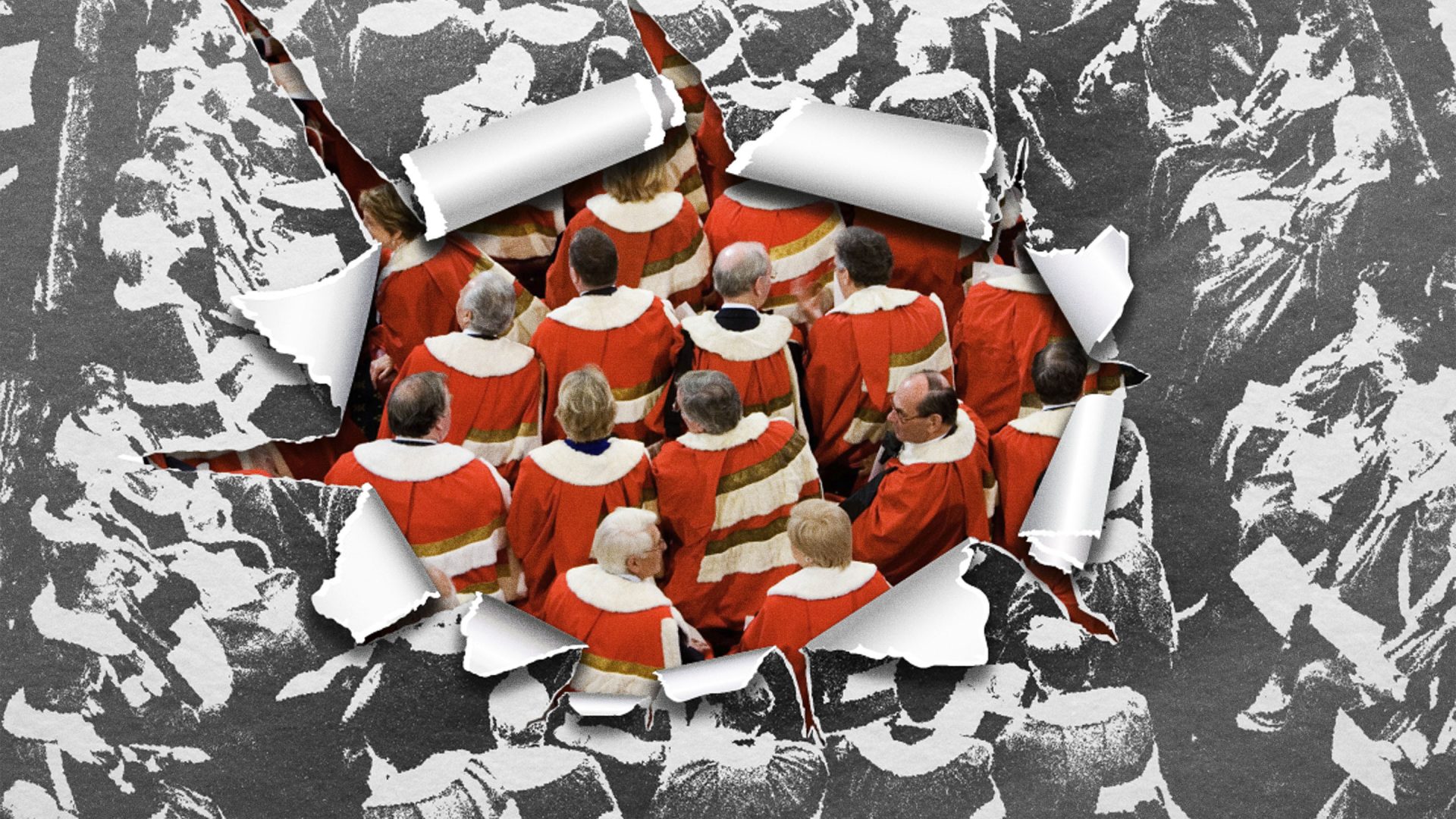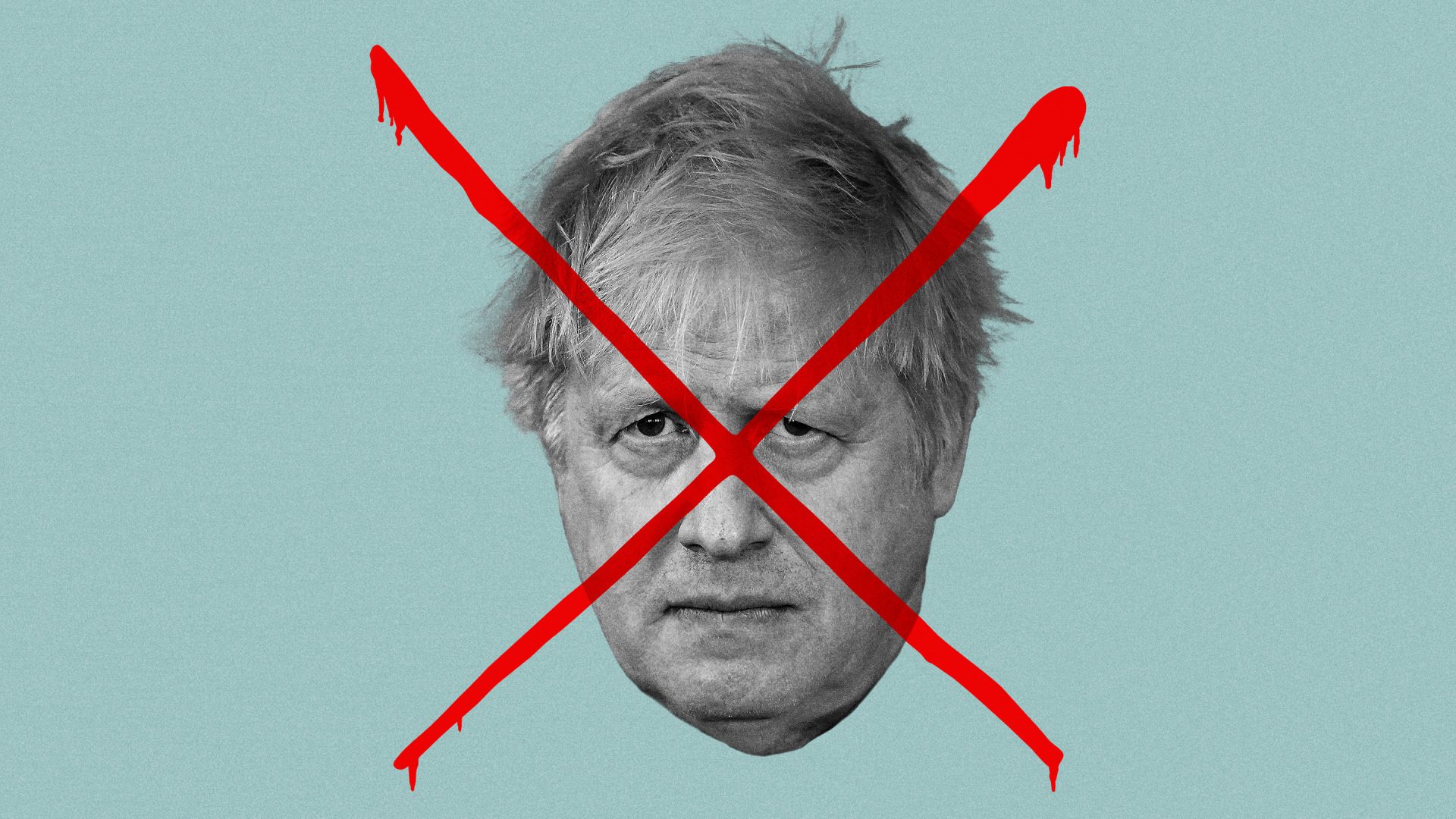Last Friday, Rishi Sunak cemented his place as the most inept politician ever to become prime minister of the UK – Liz Truss might have taken the bottom spot, but she did, after all, beat him when they went head-to-head.
The decision to give Boris Johnson virtually everything he wanted from his resignation honours list will be marked as one of the most venal, politically stupid and strategically disastrous concessions a PM has ever made.
This would have been the case even if the resignation honours had been Friday night’s biggest story, but given how events actually transpired, the scale of the PM’s failure did not take long to become apparent. A luckier prime minister might have had a few days of his decision looking defensible, but Rishi Sunak has never been what you would call a lucky premier.
Sunak caved in, in the hope that doing so might prompt some kind of thaw with his predecessor, a détente in the party’s best interests. This was an idiotic hope – Boris Johnson is not the sort of man who offers gratitude after getting what he wants. Sunak has given away the house and got absolutely nothing back in return.
Instead, he has thrown out any claim to care about decency or integrity. Boris Johnson is still under police and parliamentary investigation over his conduct when he was prime minister. His departure will not affect either – resigning does not stop parliament’s Privileges Committee being able to publish its report, and it has no bearing on any police investigation into material handed over by his lawyers.
Any successor would be well within their rights to push back on his having any resignation honours list at all. An expedient successor deciding to grant some form of list would insist it was both short and uncontroversial – only including people above reproach and free from controversy.
Instead, Johnson’s list is both extremely long – containing no fewer than 45 names for peerages, knight and damehoods, CBEs, OBEs and more – and includes some extremely questionable figures.
Peerages in particular should raise eyebrows and include thorough vetting: these are no mere bauble or trophy, but instead entitle those who receive them to play a role in British politics for the rest of their life.
Ross Kempsell’s elevation to the Lords raised numerous eyebrows in SW1 as it marks the end of an extraordinary five-year trajectory, in which he went from the Guido Fawkes blog, via TalkRadio and Times Radio, a mere one-year stint in No 10 and two years at Conservative Campaign Headquarters, and now – at the start of his 30s – will become a legislator for the rest of his life, by way of thanks.
Kempsell would have become the youngest ever life peer, if not for the fact one of his colleagues who is also now due for elevation is even younger than him, at just 30 – Charlotte Owens.
But these two are not even the most controversial people on Johnson’s list. Failed Conservative mayoral candidate and fellow Covid-19 rule-breaker Shaun Bailey – having failed to get elected to anything beyond the largely toothless and irrelevant London Assembly – enters the Lords, too.
Even more controversially, Tees Valley mayor Ben Houchen – who is currently embroiled in a major scandal over cronyism and alleged misuse of public funds – has also received a peerage, long before the resolution of any investigations or inquiries into the serious allegations about his conduct.
There are 45 names on the list, and nothing like the space that would be needed to dissect all the controversial cases, but one more is perhaps worth a closer look. Former home secretary Priti Patel will soon be the proud holder of a damehood, thanks to Johnson’s list, as approved by Rishi Sunak.
Patel’s record at the Home Office is hardly one of triumph, whatever your political persuasion – but that is barely the issue at hand. Instead, there is the simple matter that her department spent more than £300,000 of taxpayers’ money to avoid Patel having to appear at an employment tribunal hearing regarding allegations she had bullied a senior civil servant.
Rishi Sunak is a man of mixed messages, but this one is spectacular even by his standards. For Dominic Raab, bullying had to be a matter of zero tolerance and Raab had to resign – though he was allowed to do so in such an aggressively sulky way that he confirmed that the report, if anything, had been far too kind about his conduct. For Priti Patel, bullying is no obstacle to a title conferred by the monarch.
Sunak’s decision to release the list at 5pm on a sunny summer Friday is typical of his part-baked attempt at too-clever-by-half politics. In the Twitter era, these appointments still go viral any time of the week. Even the barrage of parliamentary resignations that followed, and even the arrest of Nicola Sturgeon, was not enough to stop various honourees going viral on Twitter over the weekend.
But it’s not this week’s headlines that will be Sunak’s real problem. It is that, on his watch, he has allowed the elevation of multiple people involved in matters relating to ongoing investigations into Boris Johnson – people who supplied the advice to Johnson on some of the events, and who helped to formulate the responses that are now under investigation for potentially misleading the Commons.
As those endless psychodramas roll forth, you can be sure that newspapers will make a point of including every new honorific for the relevant personnel, and a note on how the process worked and who had to sign it off. Rather than free himself from the burden of his recent predecessor, Rishi Sunak has lashed himself to the mast of Boris’s sinking ship.
The one concession Sunak seemed to have won unravelled even before the honours list had been published. Johnson and Sunak appeared to have agreed that no MPs would receive peerages in his resignation honours, sparing Sunak the pain of more byelection battles – only for Nadine Dorries to resign her seat an hour before the list dropped.
Dorries has a majority of 22,000 and her seat has been solidly Conservative since 1931. But in this political climate, even holding that seat is not a surefire prospect, and Sunak knows that, even if the seat is held, his backbenchers will be studying the size of the new majority and calculating what it suggests about their own seats. All the pain, none of the gain.
Such was the state of play when Johnson’s resignation list was published – and then Johnson resigned.
By quitting at 8pm on a Friday night, along with Nigel Adams who, like Dorries, did not get his expected peerage, Sunak has found himself in the most toxic position possible.
Thanks to Johnson’s grievance-filled resignation statement, which lashed out at Sunak for a long list of perceived crimes – failing to support him in the Privileges Committee, abandoning levelling-up, and otherwise not delivering the 2019 manifesto that delivered the Tories a landslide – Johnson supporters feel like their man has been done dirty.
It seems that Johnson is plotting some form of comeback – albeit one powered more by delusion than any kind of political reality – and Sunak will have to contend with his delusional fury.
But it was a huge mistake for Sunak to give in to his predecessor’s most outlandish demands on honours, expecting this would placate him. It did nothing of the sort. Instead, Sunak is left facing multiple byelections and a mutinous party.
The PM made a pitiful attempt on Monday to pretend that Friday’s list – which again had 45 names on it and which created the two youngest ever life peers in the House of Lords – represented him standing up to Boris Johnson. But the effect is only to make him look even more weedy, isolated and outmanoeuvred.
Any hope Sunak had of resetting the narrative between now and the general election is lost. First, it will be the Privileges Committee report into Johnson’s behaviour, then weeks of byelection campaigning to fill the seats vacated by his cronies, and then the fallout after either seats are lost, or majorities go from the tens of thousands to the low thousands, and his backbenchers get the jitters.
Chaos and an ungovernable party are now all but guaranteed. Sunak could curse his bad fortune, but in reality he is doing nothing more than reaping what he has – horribly ineptly – sown.
Sunak might want to reflect that, in a final twist of the knife, the Labour Party recently committed itself to abolishing the House of Lords, an institution the Conservatives would rather like to retain (the clue is in the party’s name).
With his moves on Friday, Sunak made the demise of the Lords likelier than it has perhaps ever been – both by boosting Labour’s prospects of forming the next government, and boosting the case that the appointment system as-is is morally indefensible. Sir Keir Starmer’s commitment to Lords reform had been somewhat shaky, but Sunak has made it all but irresistible to those on the opposition benches.
So, congratulations to Lord Kempsell et al. You perhaps shouldn’t get too comfortable, though.




